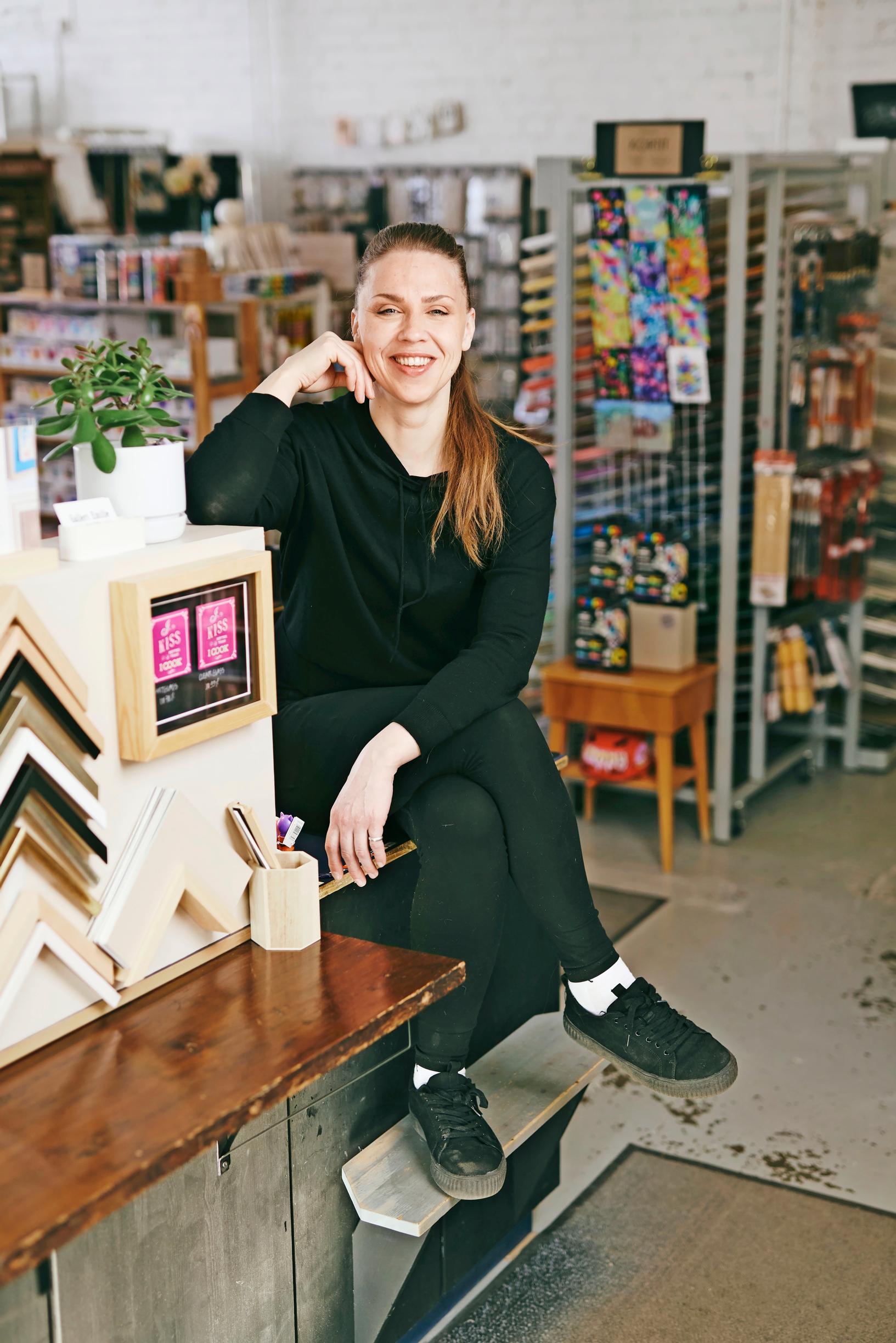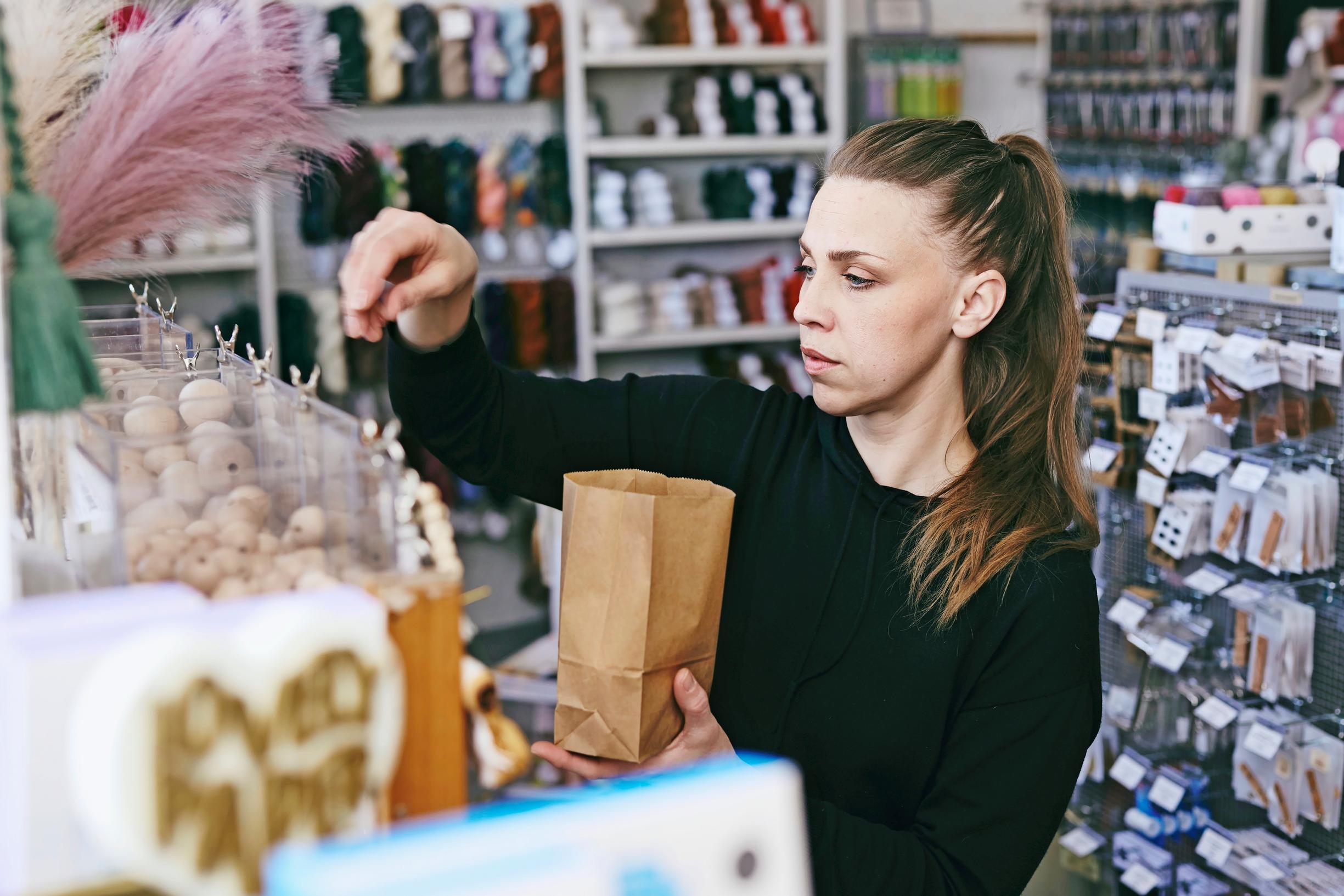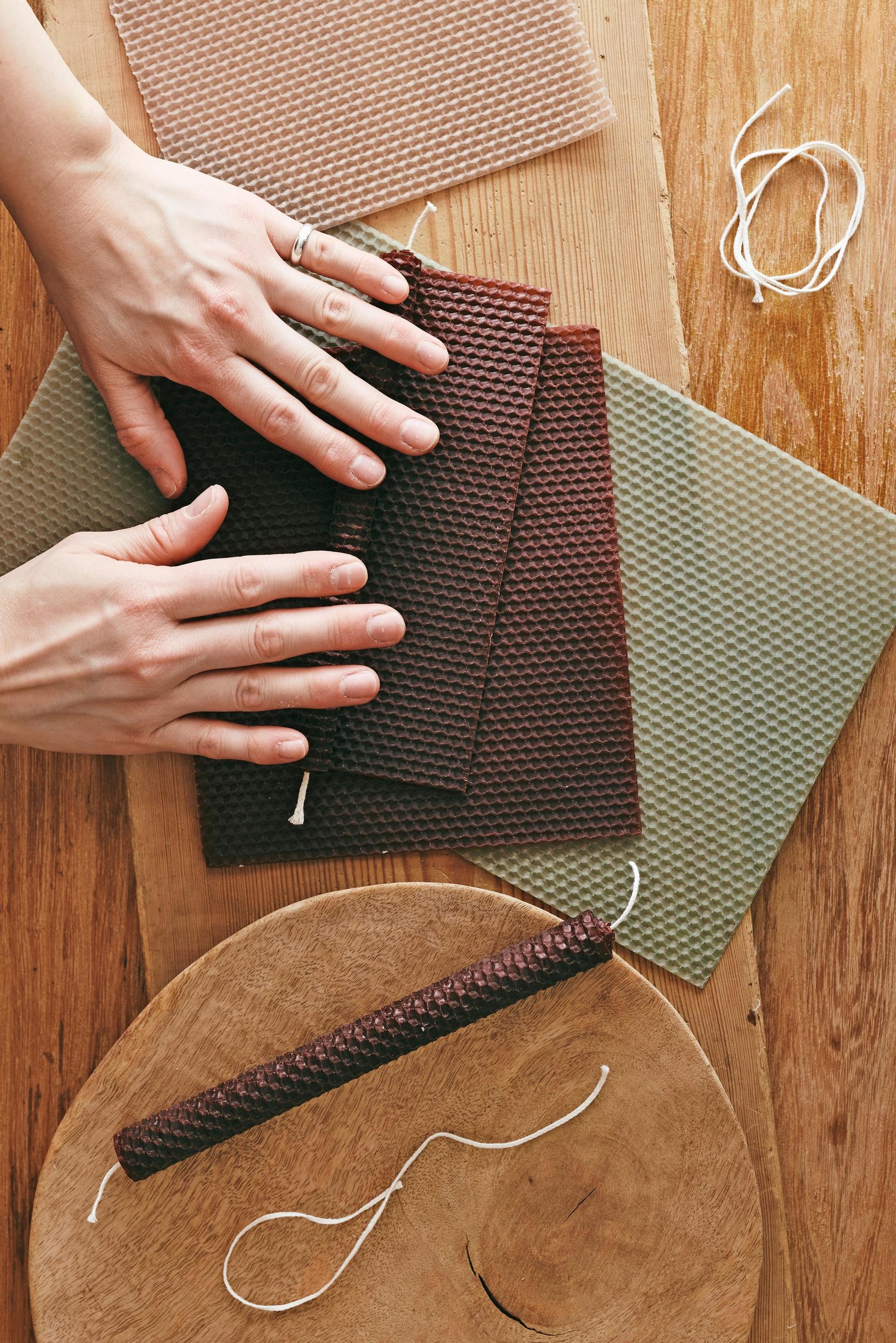
Jenny runs an idyllic art and craft supply shop in Porvoo: “You only know if you’ll succeed if you try, but you rarely regret trying”
Even though Jenny Hällfors loved art as a child, she didn’t dare pursue a creative career. After working in everything from taxi driving to emergency care, she realised how important it is to work in line with her values—and now she runs her own art and craft supply shop.
An ambulance brought a ninety-year-old war veteran to Porvoo Hospital after he had called for help. His overall condition was poor, and he weighed less than 50 kilos. In the hospital’s internal medicine ward, paramedic Jenny Hällfors met the patient and asked how he was feeling.
The man said he lived at home with his ill wife and was trying to cope with everyday chores on his own, without outside help. Jenny realised the couple had slipped through the social safety net; social services didn’t even know they existed.
Halfway through the conversation Jenny was called away. The hospital was short-staffed and extra hands were needed elsewhere.
“I would have liked to support the man when he tentatively started to open up about his situation, but I had no time to stay and chat,” Jenny recalls of the meeting in early 2019.
The conflict between the everyday time pressure and the values at the heart of paramedic work felt awful to Jenny. The idea of leaving healthcare started to take root in her mind.


Can you be creative every day?
Becoming a paramedic had never been an obvious path for Jenny; creativity and working with her hands was her thing. As a child she loved drawing and painting and attended art school alongside high school.
But then her art studies came to a halt. Jenny woke up to what it would mean if she had to be creative every single day. Would it extinguish the joy of making altogether?
“I noticed that when I was forced to finish assignments within a set time, it had a negative effect on my work.”
Working under time pressure didn’t feel good, nor did Jenny always get excited about every assignment she was given. After graduating in 2004 she decided first to become a personal assistant, then a taxi driver and a croupier.
Yet no matter how skilfully she learned to deal the cards, it made no difference to the outcome—the customer’s loss was inevitable. At work, Jenny was haunted by a sense of meaninglessness.
The changes felt unfair
After qualifying as a paramedic Jenny got a job at Porvoo Hospital. In her new everyday life no two days were alike. She loved being able to help; her skills now truly mattered.
Creativity remained part of her free time. After two years on the job, in the spring of 2015, Jenny became a mother. She suddenly had more time for crafts, and her sewing machine hummed as she made fabric storage bags, wallets and totes. She started a small business and an online store to sell them, donating part of the proceeds to charity.
At the same time, cost-cutting pressures in social and healthcare were mounting. When Jenny returned to the hospital after parental leave, she noticed the austerity drive didn’t affect everyone equally.
“The changes were hard to grasp. Staffing shortages were constant, yet nurses’ incentive bonuses were scrapped,” Jenny says.
Jenny felt that staff opinions weren’t listened to—sometimes not even valued. If you disagreed, the door was pointed out all too quickly. Jenny told her supervisor she planned to quit.
Jenny did her best at work, adapted to the changes, but didn’t demand perfection from herself.
Old colleagues came to the rescue
At the end of May 2019 Jenny and her four-year-old daughter popped into a familiar craft-supply store in Porvoo called Paperipilvi. Discount signs were everywhere. The sales assistant explained the store was having a closing-down sale.
“I couldn’t believe it! This can’t be happening,” Jenny recalls.
She lamented the situation to her then-partner, who remarked that there was a job for her right there. The idea of taking over the craft store had crossed her own mind too; hearing someone else say it made it feel real.
Her entrepreneur parents also encouraged her. Jenny secured a loan from the bank, and once the business purchase was finalized she became an entrepreneur. The decision to continue the craft-supply shop felt right.
She had a month until the grand opening. At lightning speed Jenny sorted through all the old stock, signed new contracts with suppliers and replaced the outdated cash system. The shop also needed a deep clean and a complete re-layout.
Former colleagues rushed to help. Jenny remembers how spotless the staff-room kitchen looked after her nurse friends had been there. She burst into tears of gratitude.
“That’s what I miss—the hospital community and my wonderful co-workers,” she says.
But soon came Covid, then the war in Ukraine. A financial crisis hit, followed by an energy crisis. Societal uncertainty grew and supply issues affected the products she sold.
Jenny did her best at work, adapted to the changes, and refused to demand perfection from herself. Even though unfinished tasks kept her awake at night, she didn’t lose heart.




Easing the inner turmoil
Bright spotlights illuminate the shelves of the brick-and-mortar store, lined with papers, pens, brushes and paints in neat order.
Jenny’s art background is an asset here. She knows the materials and techniques and wants to show how amazing things you can make yourself. Paperipilvi’s social channels are bursting with handmade candles, soaps, jewellery, knits and decorations for homes and parties.
Jenny says her attitude toward creativity has loosened up. She’s now better at planning, which calms the mental storm. She moves forward by grouping tasks into themes and blocking time for them in her calendar.
“When a million thoughts whirl around in my head, even a simple task feels overwhelming—I can’t get anything done. But getting my thoughts in order helps,” Jenny says.
A person isn’t happiest when they’ve reached their destination, but when they’re on the way and everything along the journey is going well.
Everything beforehand proved useful
Jenny will turn forty in May 2025. She believes the jobs she had before her own business prepared her for entrepreneurship.
As a personal assistant, Jenny’s Finnish improved; as a taxi driver she learned customer service; as a croupier she mastered handling money. In the hospital multitasking was practically a prerequisite for success, and running a small business taught her the basics of commerce.
In Finland, career changes are no longer encouraged the way they once were. Adult-education support and job-alternation leave have been discontinued, and without financial backing the transition period can be tough.
“I understand the reasoning—every student costs money,” Jenny says.
“But people change. Wouldn’t it be good if you could do what makes you happiest and where you feel you excel?”
In Jenny’s view that boosts employee satisfaction and has a positive impact on results.
Jenny herself doesn’t know where work will take her in ten years. She recalls an old saying about travel that she thinks also applies to making art.
“A person isn’t happiest when they’ve reached their destination, but when they’re on the way and everything along the journey is going well,” Jenny says.
The need for change surfaced when Jenny realised she couldn’t do her job the way she wanted to.


Jenny’s tips for easing work stress
1. I trust my work ethic. When I’ve done my best, I can face the outcome, whatever it is. Many people ask how I dared to become an entrepreneur. In the hospital I saw how some people, at the end of their lives, regretted not daring. You only find out if you’ll succeed by trying. Trying is rarely something you regret later.
2. Traditional to-do lists consist of individual tasks and can feel overwhelming. Instead, I’ve learned to view unfinished work more broadly. I make room in my calendar for a themed block—say, new products—and later check whether I spent that time on it. It’s a more rewarding way for me to work, even if I don’t get everything done at once.
3. I stick to my vision and to doing things well. I remind myself that finishing is more important than perfection. Getting something done matters more than doing it exactly the way I envisioned.


